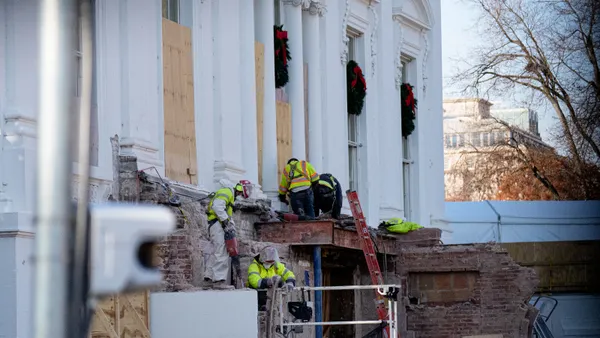Dive Brief:
- OSHA has fined two Missoula, MT, companies a total of $151,000 for nine workplace safety violations of failing to protect their workers from cave-in hazards. The agency investigated the companies after receiving complaints of an employee being partially buried in an excavation cave-in at a sewer line installation project.
- Glennco Excavating was cited for one willful, two serious, and three repeat violations due to a lack of adequate cave-in protection, failure to remove employees from the excavation site when cave-in hazards were present, a lack of proper training, a lack of head protection, and failure to support sidewalks and pavements. OSHA's penalties for Glennco total $130,200.
- Additionally, a temporary staffing agency, Labor Ready Northwest Inc., was cited for three serious violations due to a failure to provide adequate training and cave-in protection. Labor Ready's fines total $21,000.
Dive Insight:
Art Hazen, OSHA's acting area director in Billings, said the incident reflected the need for heightened attention on safety concerns for temporary workers. He stressed that staffing agencies have a responsibility to ensure that their workers are safe on a job site, even when they are under the watch of another company.
"Temporary staffing agencies and host employers share control over workers, and are therefore jointly responsible for their safety and health. These employers did not exercise their ultimate responsibility," he said. "Just because you hire a temporary employee does not mean that you can assume that the temporary employer has addressed all safety concerns and requirements, and the same can be said for the temporary staffing agency."
There has recently been increased scrutiny on job site safety, and hazards associated with excavation and cave-ins have been a major cause of concern. Earlier this month, OSHA slapped two contractors working on the downtown Austin Central Library in Austin, TX, with $88,000 in fines for willfully violating safety requirements to adequately protect workers from potential cave-in hazards.












